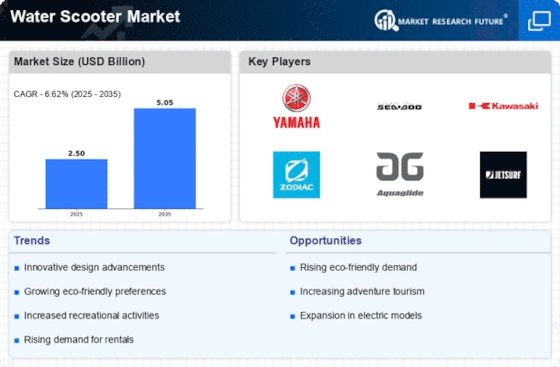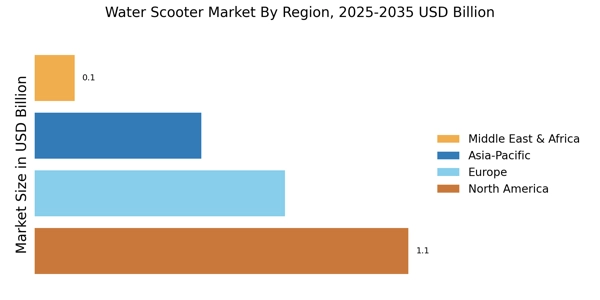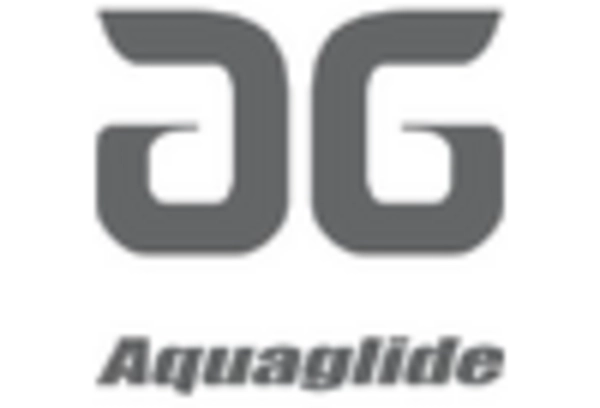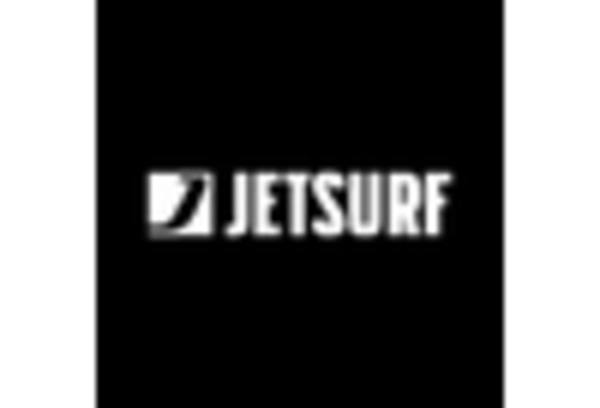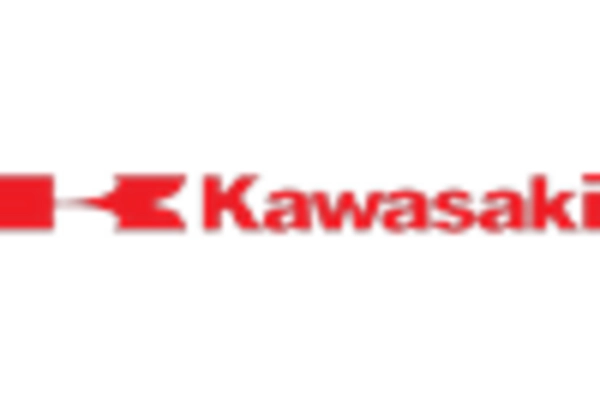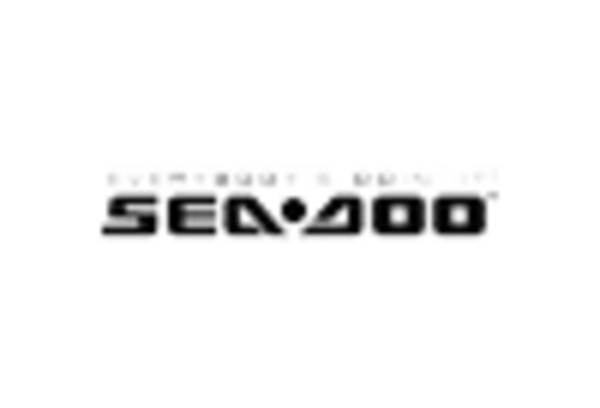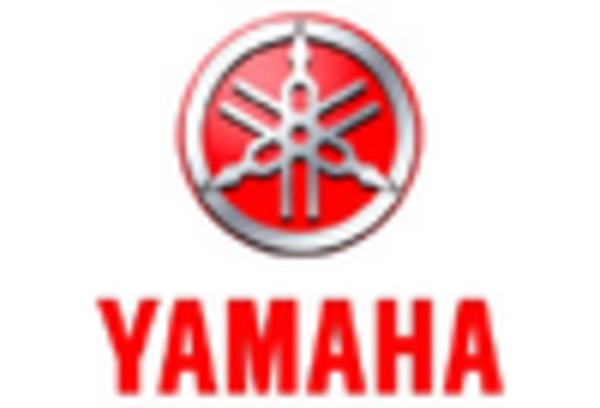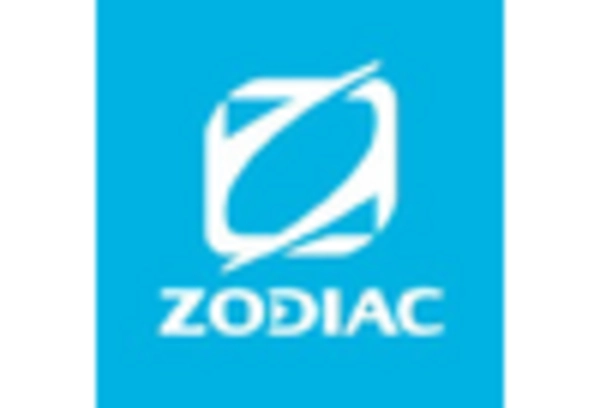Environmental Awareness
The Water Scooter Market is witnessing a shift towards environmentally friendly products, driven by heightened consumer awareness regarding sustainability. As individuals become more conscious of their ecological footprint, the demand for eco-friendly water scooters is on the rise. Manufacturers are responding by developing models that utilize sustainable materials and energy-efficient technologies. Market data suggests that sales of electric water scooters, which produce zero emissions, are expected to increase significantly in the coming years. This trend aligns with global efforts to promote sustainable tourism and recreational practices. Consequently, companies that prioritize environmental considerations in their product development are likely to thrive in the Water Scooter Market.
Technological Innovations
The Water Scooter Market is experiencing a surge in technological innovations that enhance performance and user experience. Manufacturers are increasingly integrating advanced materials and propulsion systems, which improve speed, efficiency, and maneuverability. For instance, the introduction of electric water scooters has gained traction, appealing to environmentally conscious consumers. The market data indicates that the adoption of electric models is projected to grow by approximately 25% over the next five years. This shift not only caters to the demand for sustainable options but also aligns with the broader trend of technological advancement in recreational vehicles. As a result, companies that invest in research and development are likely to gain a competitive edge in the Water Scooter Market.
Rising Water Sports Popularity
The Water Scooter Market is benefiting from the increasing popularity of water sports and recreational activities. As more individuals seek thrilling experiences on water, the demand for water scooters is expected to rise. Recent surveys suggest that participation in water sports has increased by over 15% in the last few years, indicating a growing consumer base. This trend is particularly evident among younger demographics, who are more inclined to engage in adventurous activities. Consequently, manufacturers are responding by diversifying their product offerings to cater to various skill levels and preferences. The expansion of water sports events and competitions further fuels interest, thereby driving growth in the Water Scooter Market.
Tourism and Recreational Growth
The Water Scooter Market is poised for growth due to the expansion of tourism and recreational activities in coastal and lakeside regions. As travel and leisure activities rebound, destinations are increasingly incorporating water scooters into their offerings, enhancing the overall tourist experience. Data shows that regions with established water sports infrastructure have seen a rise in tourist arrivals, with water-based activities being a significant draw. This trend is likely to continue, as more resorts and rental services include water scooters in their packages. The integration of water scooters into tourism not only boosts local economies but also stimulates demand within the Water Scooter Market, creating opportunities for manufacturers and service providers alike.
Customization and Personalization Trends
The Water Scooter Market is increasingly influenced by consumer preferences for customization and personalization. As buyers seek unique experiences, manufacturers are offering customizable options that allow consumers to tailor their water scooters to individual tastes and needs. This trend is particularly appealing to younger consumers who value personal expression in their recreational activities. Market analysis indicates that the demand for personalized water scooters is likely to grow, with companies that provide such options gaining a competitive advantage. Additionally, the ability to customize features such as color, design, and performance specifications enhances customer satisfaction and loyalty. This focus on personalization is expected to play a crucial role in shaping the future of the Water Scooter Market.


